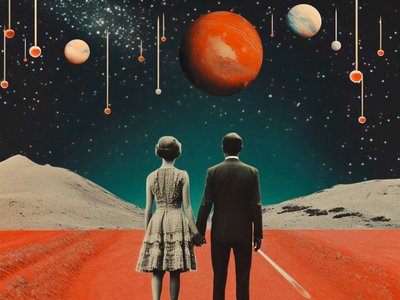

How can we learn from the past in order to protect and preserve our environment as well as cultural assets and democratic coexistence? How do we want to shape our coexistence against the backdrop of previous crises? What knowledge and skills will future generations need in order to be prepared for the various challenges? These and other questions will be discussed by experts from the fields of citizen science, Holocaust education, participatory research and science education at the panel discussion “Knowledge transfer across generations. Shaping the future with research knowledge”.
The panelists
Lars Keller is a professor at the Department of Geography and head of the “Education and Communication for Sustainable Development” department at the Institute of Didactics at the University of Innsbruck. His research interests include climate change education and transdisciplinary research. He heads the Sparkling Science project FFF-Gletscherwelten. In this project, young people create virtual glacier worlds for the future of climate change education.
Victoria Kumar is a historian and program manager of ERINNERN:AT at the OeAD. She is responsible for several projects on learning with videotaped interviews with contemporary witnesses, on places of remembrance of victims of National Socialism and on educational work critical of anti-Semitism. Her research focuses on: History of National Socialism and the Holocaust, flight and exile to/in Palestine/Israel, anti-Semitism, oral history, cultures of remembrance, digital mapping.
Karin Reisinger teaches at the Academy of Fine Arts Vienna. Until October 2024 she led the intergenerational citizen science research project Stories of Post-extractive F*utures. She works with inclusive and artistic methods to develop intersectional-feminist perspectives on extractivism and the future.
Friedrich Wolf is an educational scientist at Goethe University Frankfurt, where he is dedicated to the intersections of media education, digitalization and artificial intelligence. With a particular focus on intergenerational perspectives, he examines how people use, appropriate and integrate digital media into their everyday lives.
HERE you can register for the event.
